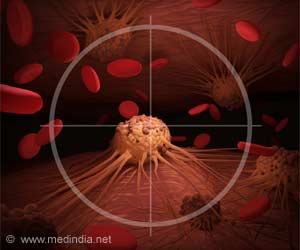Artificial intelligence (AI) may soon make magnetic resonance imaging (MRIs) safer for patients by reducing the dose of gadolinium-based contrast agent, which is administered to patients to enhance image quality of the scan.
- Artificial intelligence (AI) may help synthesize MRI images similar in quality to full dose contrast-enhanced pictures although the patient is given a significantly lower dose of gadolinium-based contrast agent
- Gadolinium-based contrast material is administered to persons undergoing MRI scanning to give clearer and better quality images. It enhances areas of tumor, inflammation, and blood vessels
- Traces of gadolinium are left behind in the patient’s body including brain tissue and may pose a health hazard although the exact effects on the patient remain unclear
Read More..
Using Artificial Intelligence to Make MRIs Safer for Patients
The members of the research team hope to make MRIs safer for patients and reduce any potential health risks due to gadolinium-based contrast agents. In looking for a solution, they turned to artificial intelligence.Gong said, "There is concrete evidence that gadolinium deposits in the brain and body. While the implications of this are unclear, mitigating potential patient risks while maximizing the clinical value of the MRI exams is imperative."
- For the study, the team used MRI scans of 200 patients who had undergone contrast-enhanced MRI testing for various conditions
- For each patient, there were three sets of images based on amount of contrast used while imaging. These included zero dose scans or precontrast scans taken initially before giving the contrast agent. The low dose scans were taken after giving 10 percent of the total gadolinium dose and the full dose scans were imaged after giving the full dose of gadolinium
- The AI machine was shown the three sets of images and gradually learnt to artificially synthesize full dose contrast type of images from the low dose (10% dose) contrast images
- The synthesized images were analyzed by neuroradiologists for image quality and contrast enhancement
- The quality of the AI created images (using low dose contrast images) was found to be comparable to actual full-dose, contrast-enhanced MR images
Gong says, "Low-dose gadolinium images yield significant untapped clinically useful information that is accessible now by using deep learning and AI."
What is Artificial Intelligence?
Artificial intelligence (AI) is also known as machine intelligence. In AI, the computer is trained over a period of time to perform tasks similar to humans. This is achieved by a process called deep learning technology where, for example the computer is fed with images and taught over a period using established parameters to recognize patterns and shapes (that may not be evident to the human eye). Once it learns, the computer is then able to process the information/images fed into it and interpret it as well as and much faster than humans.Future Plans
- The team plans to take their research to the clinical setting
- Also, plans to test the AI algorithm in a wider range of MRI scanning machines and other contrast agents as well
Conclusion
In conclusion, the findings of the study may be a potential game changer in MR imaging and could make imaging safer for patients.Concluding with the remarks of Dr Gong, "We're not trying to replace existing imaging technology. We're trying to improve it and generate more value from the existing information while looking out for the safety of our patients."
Reference:
- Artificial Intelligence May Help Reduce Gadolinium Dose in MRI - (https://press.rsna.org/timssnet/media/pressreleases/14_pr_target.cfm?ID=2049)
Source-Medindia














